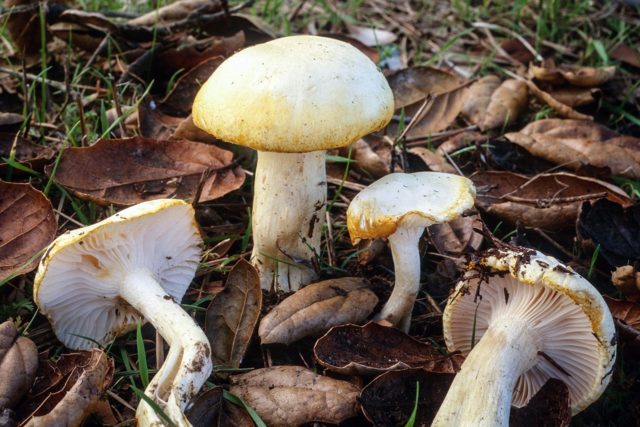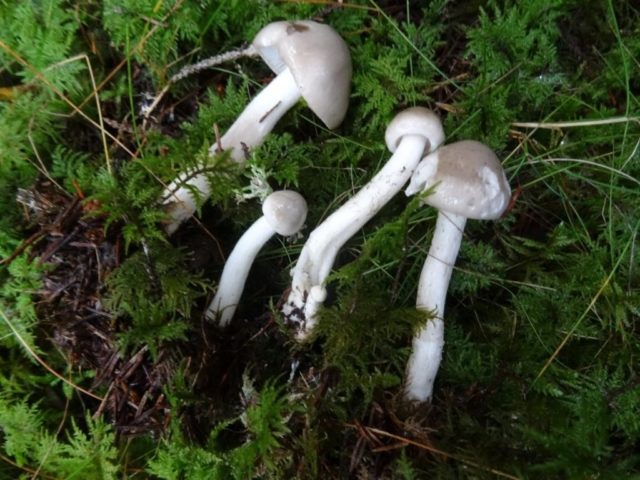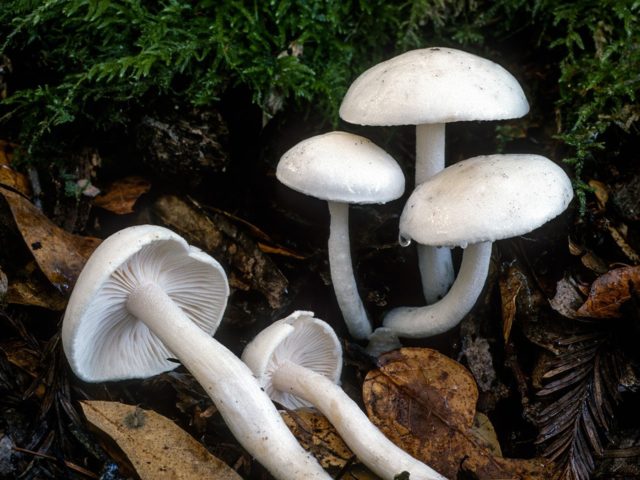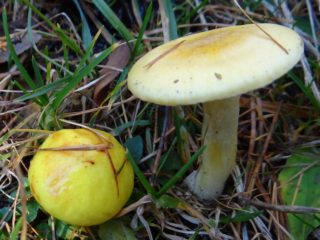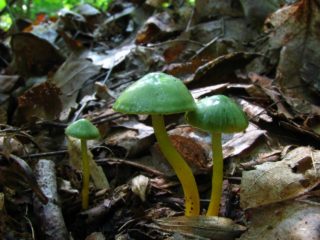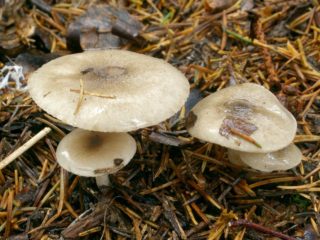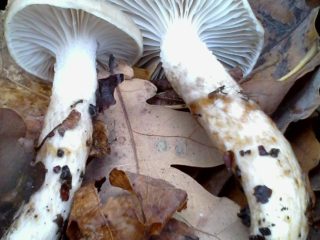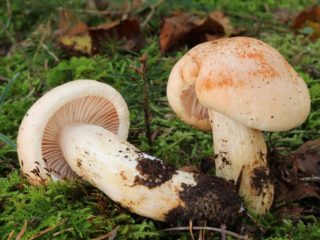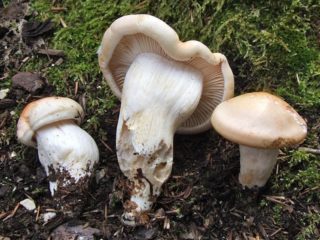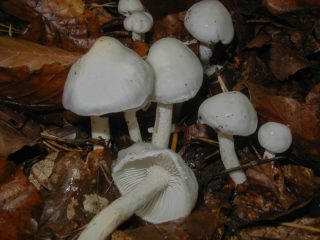Content
Golden Gigrofor is a lamellar mushroom of the Gigroforov family. This species grows in small groups, forming mycorrhiza with different trees. In other sources, it can be found under the name of the golden-toothed hygrophor. In scientific circles, it is listed as Hygrophorus chrysodon.
What does the golden hygrophor look like?
The fruiting body of this species is of the classical type. The hat initially has a convex bell-shaped shape with an edge concave downward. As it ripens, it straightens out, but a small tubercle remains in the center. The surface is smooth, sticky, covered with thin scales closer to the edge. In young specimens, the color of the upper part is whitish, but later it becomes golden yellow. The diameter of the cap reaches from 2 to 6 cm.
The pulp is watery, soft. It is characterized by a light shade and does not change when cut. The smell is mild, neutral.
On the reverse side of the cap there are rare wide plates descending to the pedicle. The hymenophore initially has a whitish tint, and then becomes yellow. The golden hygrophor has white ellipsoidal spores with a smooth surface. Their size is 7.5-11 x 3.5-4.5 microns.
The leg is cylindrical, narrowed at the base, sometimes slightly curved. Its length reaches 5-6 cm, and its width is 1-2 cm. In young fruits, it is dense, and then a cavity appears. The surface is sticky, white, with a light fluff closer to the cap and yellow scales along the entire length.
Where does the golden hygrophor grow
This mushroom is common, but it grows singly or in small groups. Prefers conifers and deciduous forests with humus-rich soil. Forms mycorrhiza with oak, linden, pine. The fruiting period begins in mid-August and continues through the second decade of October.
The golden hygrophor is widespread in Europe and North America. On the territory of Russia, it is found everywhere.
Is it possible to eat a golden hygrophor
This mushroom is considered edible. But it does not possess high taste, therefore it belongs to the fourth category.
False doubles
At the initial stage of development, the gigrofor is golden in many ways similar to its relatives. Therefore, in order to avoid error, it is necessary to study the characteristic differences of twins.
Similar species:
- Fragrant gigrofor... It has a pronounced almond scent, and in rainy weather it can spread for several meters around. You can also distinguish it by the gray-yellow shade of the hat. This mushroom is considered conditionally edible and is characterized by a sweetish pulp taste. The official name is Hygrophorus agathosmus.
- Gigrofor yellowish-white... The fruit body is medium in size. The main color is white. A distinctive feature is that when rubbed, wax is felt on the fingers. The mushroom is edible, its official name is Hygrophorus eburneus.
Collection rules and use
Mushroom picking should be done with a sharp knife, cutting off the fruiting body at the base. This will prevent damage to the mycelium.
Before use, forest fruits must be cleaned of litter and soil particles. Then rinse the mushrooms thoroughly. It can be consumed fresh and processed.
Conclusion
Gigrofor golden belongs to the category of unpopular, but edible mushrooms. This is due to its poor fruiting, which makes harvesting difficult, and its neutral taste. Therefore, most mushroom pickers bypass it. Since during the fruiting period, more valuable species can be harvested.
